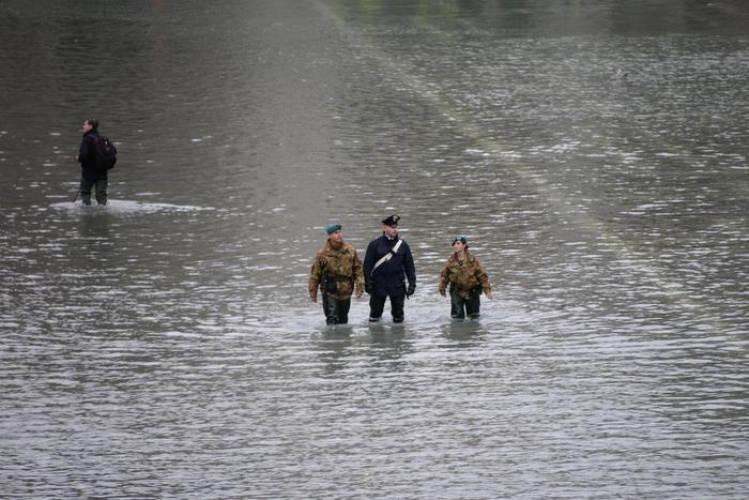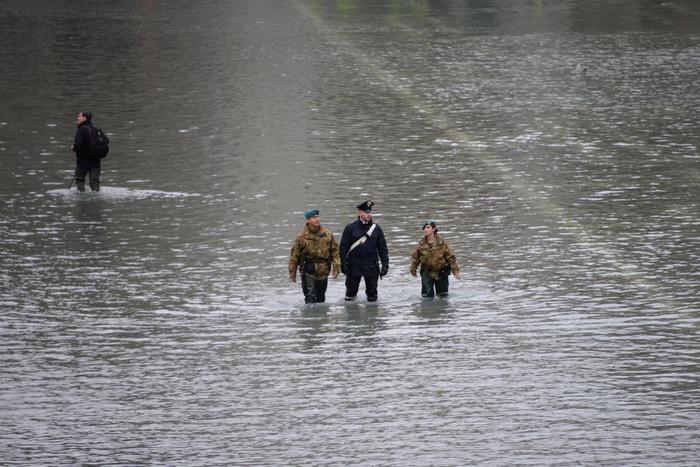As a new year – and decade – approaches, let’s take a look at the biggest news to come out of Italy in 2019.
A fugitive finally captured
Two weeks into January, Italian authorities confirmed that fugitive left-wing militant and convicted murderer Cesare Battisti had been captured in Bolivia after almost three decades on the run.
Battisti (pictured below), who had been sentenced to life in prison for four murders in the 1970s, was arrested on January 14 after an international police squad tracked him to the Bolivian city of Santa Cruz de La Sierra.
He had been living in Brazil for years, until the nation’s outgoing president signed a decree ordering his extradition.
Two months after he was brought back to Italy, Battisti confessed to four murders during the 1970s, after decades of denying any involvement in the homicides.
He confessed to killing a policeman and a prison guard, to taking part in the murder of a butcher and to helping plan the killing of a jeweller who died in a shootout which left his 14-year-old son in a wheelchair.
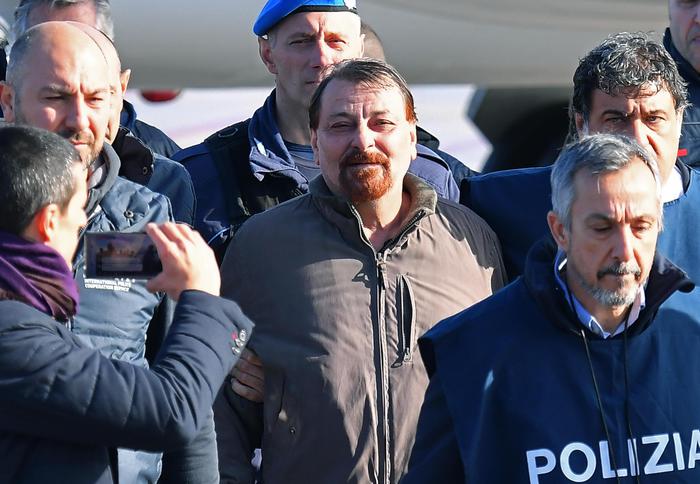
The migrant crisis continues
As people settled in to 2019, Italy’s migrant crisis became an even more pressing issue following the government’s decision to block Italian ports to charity rescue ships.
On January 9, a weeks-long standoff came to an end when 49 migrants stranded at sea for weeks aboard two rescue ships arrived in Malta after eight EU member states, including Italy, agreed to take them in.
The Sea-Watch 3 had rescued 32 people from an unsafe boat off the coast of Libya on December 22, while another German charity, Sea-Eye, had rescued 17 others on December 29.
Both ships had been floating in Maltese waters for weeks after all EU countries refused to offer them a safe port to dock.
This was the first standoff of the year, but certainly not the last.
On January 30, Italian Prime Minister Giuseppe Conte announced that 47 migrants stranded aboard a rescue boat operated by German NGO Sea-Watch could finally disembark after Italy and six other countries had agreed to take them in.
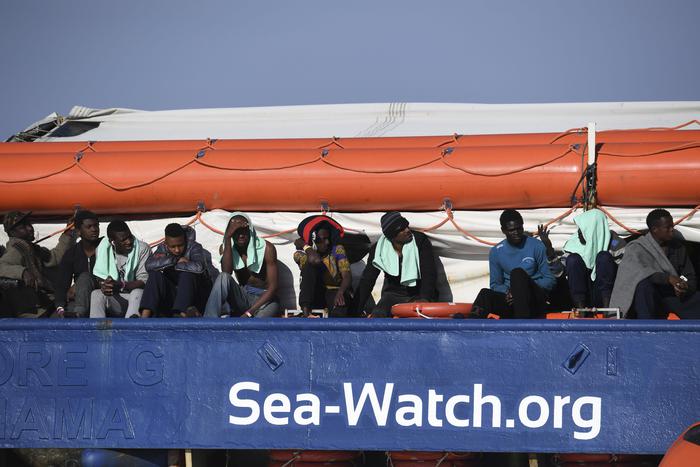
The vessel had been stranded in Sicilian waters for over a week after Italy and other European nations had refused to let it dock.
Sea-Watch had earlier filed an urgent case at the European Court of Human Rights (ECHR) against Italy for refusing to allow its ship to dock and the mainly sub-Saharan migrants, including 15 minors, to disembark.
Italy’s Interior Minister Matteo Salvini was later placed under investigation for alleged false imprisonment after refusing to allow the migrants to disembark.
Mahmood takes Sanremo by storm
In February, more than 10 million viewers tuned in to Italian state broadcaster Rai for the opening night of the Sanremo Music Festival.
Famous Italian singer Andrea Bocelli wowed crowds on the night, performing an evocative duet with his son Matteo.
Following five exciting evenings of performances, Mahmood (pictured below) was crowned the winner of the 69th edition of the festival, for his song Soldi (Money).
Born to an Egyptian father and Sardinian mother, Mahmood became a symbol of multiculturalism at a time when the nation was grappling with the anti-immigrant rhetoric of far-right League leader Matteo Salvini.
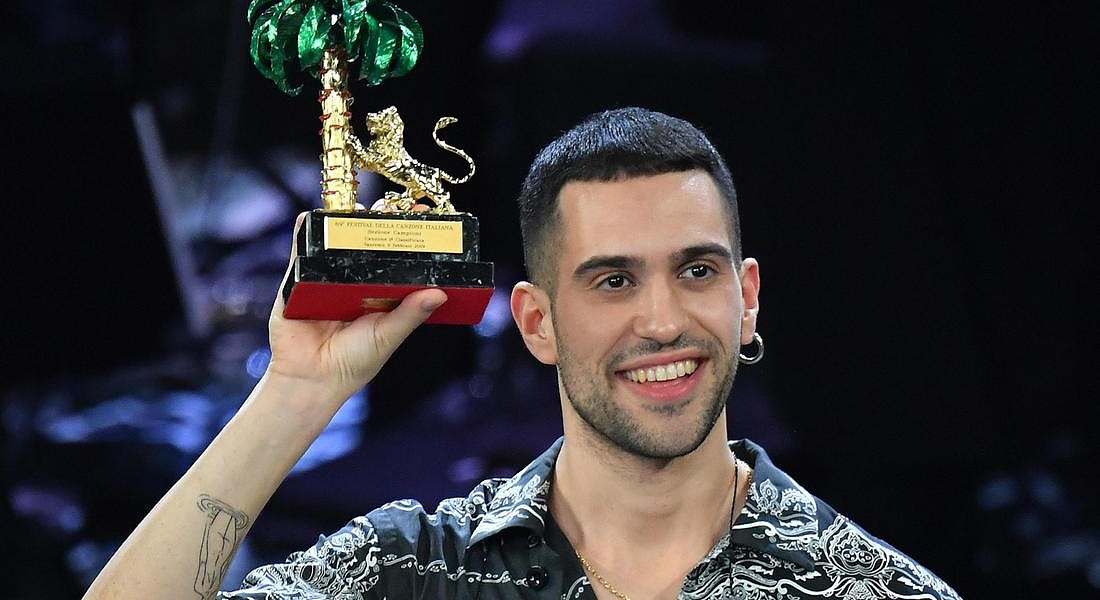
A hazardous year for Ciampino
In Rome, flights were suspended and a terminal was evacuated at Ciampino airport on February 7, when three World War II bombs were discovered during construction work.
The bombs weighed a combined 150 kilograms, including around 75 kilograms of gunpowder.
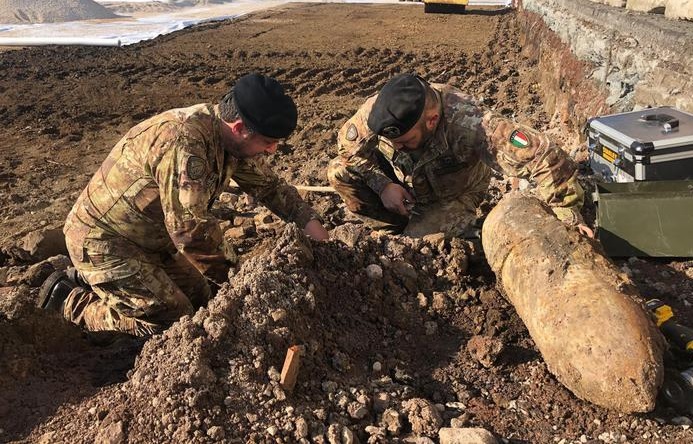
Less than two weeks later, flights from Ciampino airport were delayed after the departures area was closed due to a fire in the terminal basement.
While the blaze was reportedly put out in less than a minute, it caused crowds and flight cancellations for most of the day.
The Catholic Church takes revolutionary steps to combat sex abuse scandals
In February, Pope Francis held a landmark summit on sexual abuse and paedophilia within the Church, calling for an “all-out battle” against the widespread scandal.
Over four days, 114 senior bishops listened to speeches about the “outrage of the people” and heard the horror stories of victims.
On the first day of the summit, Pope Francis called for “concrete measures” to tackle clerical sexual abuse and paedophilia.
“If in the Church there should emerge even a single case of abuse – which already in itself represents an atrocity – that case will be faced with the utmost seriousness,” he said.
Just days before the summit, Pope Francis had defrocked a former archbishop and cardinal over sexual abuse accusations in a first for the Roman Catholic Church.
The Vatican banned American Theodore McCarrick (pictured below) from practising as a priest after he was found guilty in January of sexually abusing a teenager 50 years ago.
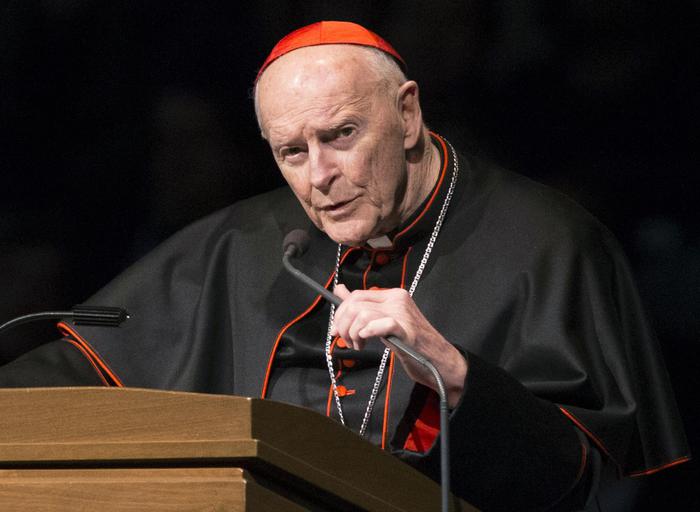
He was the first ever cardinal to be defrocked for sexual abuse.
Just this week, the Pope made even more progress, announcing sweeping changes to the way the Roman Catholic Church deals with cases of sexual abuse of children, abolishing the rule of pontifical secrecy that previously covered them.
“This is an epochal decision,” Archbishop Charles Scicluna of Malta, the Vatican’s most experienced sexual abuse investigator, told Vatican Radio.
The lifting of pontifical secrecy in sexual abuse investigations was a key demand by church leaders, including Scicluna and the German cardinal Reinhard Marx, at the summit held in February.
“Killer Mountain” claims the life of an Italian
March began with the sad news that crews were searching for a missing Italian climber and his British climbing partner stuck on a treacherous peak known as “Killer Mountain”.
Daniele Nardi (pictured below) and Tom Ballard were attempting the 8126-metre climb in Pakistan’s Himalayas, one of the hardest mountaineering feats in the world, when they went missing.
The bodies of the two climbers were found almost two weeks after the pair went missing.
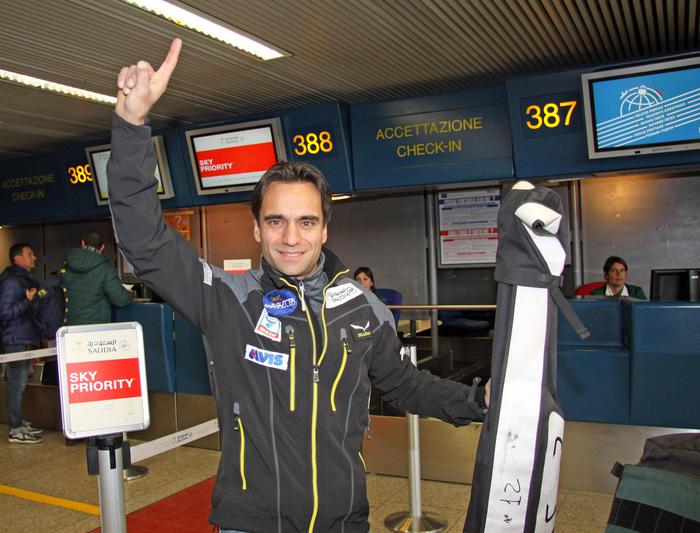
Eight Italians killed in Ethiopian Airlines crash
The nation was rocked again when eight Italians and several British and Irish UN employees based in Rome were among those killed in the tragic Ethiopian Airlines disaster on March 10.
Ethiopian Airlines flight 302 crashed six minutes after taking off from Addis Ababa, killing all 157 passengers and eight crew on board.
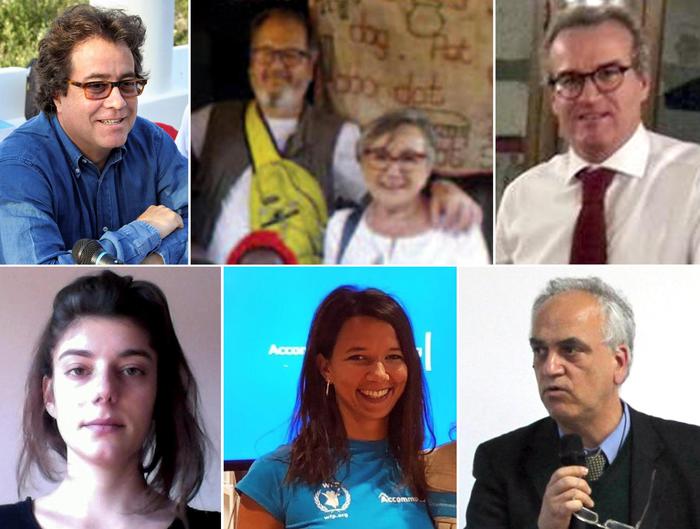
The Christchurch mosque massacre hits Italy too
Italy was wrapped up in another international tragedy in March: the Christchurch mosque massacre.
The weapons and ammunition used in the mass shooting of 50 Muslims in the New Zealand city were emblazoned with the names of several violent white supremacists, including Italian mass shooter Luca Traini.
Traini is an Italian neo-Nazi sympathiser who injured six African migrants in a series of racially-motivated drive-by shootings in Macerata on February 3, 2017.
Boy becomes hero in bus hijacking
Meanwhile back home, Italians received the news that a bus driver had abducted 51 children and their chaperones outside Milan, ordering the children’s hands to be bound and threatening to kill all those on board before setting fire to the vehicle.
Twelve children and one adult were taken to hospital for low-level smoke inhalation and the hijacker himself was treated for burns.
Ousseynou Sy, the driver who carried out the hijacking to protest against migrant deaths at sea, claimed he acted after hearing “the voices of children dying in the Mediterranean”.
The interior ministry later announced it would speed up granting citizenship to a quick-thinking student who hid and called authorities when the bus was hijacked.
The Carabinieri police of Sandonato Milanese identified the student as 13-year-old Ramy Shehata (pictured below).
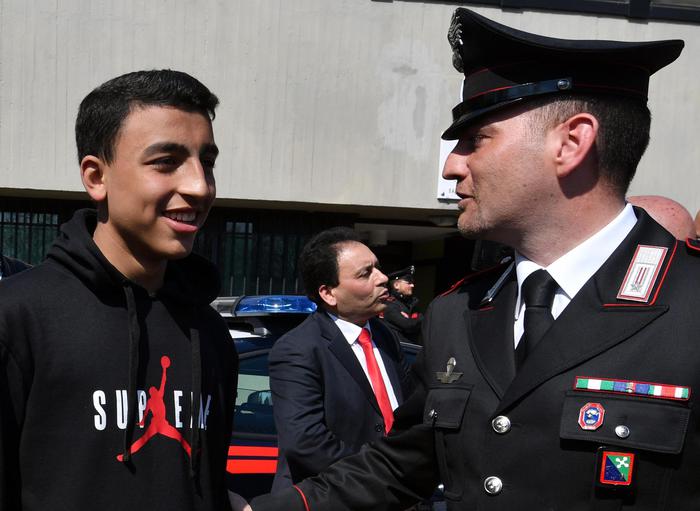
Ramy, who has been hailed a hero by classmates and authorities, was born in Italy but is not an Italian citizen.
Italy’s youth unite against climate change
Speaking of astounding teens, March 15 saw thousands of Italian students walk out of school as part of a global strike to demand action on climate change by world leaders.
The initiative was spearheaded by Swedish teen activist Greta Thunberg, who just this month was name Time magazine’s Person of the Year.
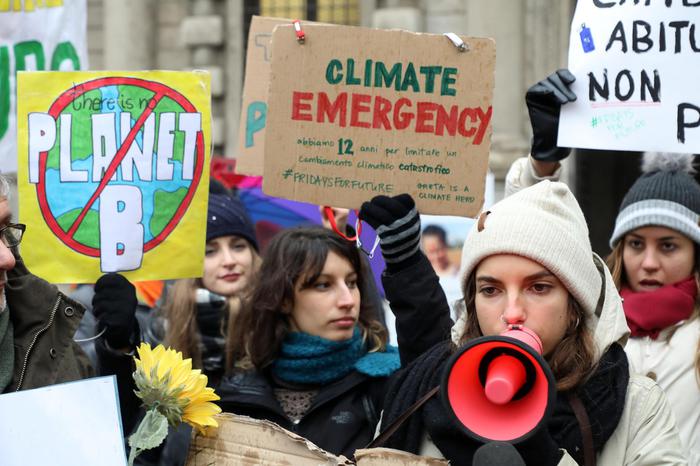
Thunberg later visited Italy to make her message loud and clear.
“We children are not sacrificing our education and our childhood for the adults and politicians to tell us what they consider is politically possible in the society they have created,” the 16-year-old told a crowd of around 25,000 demonstrators in Rome in April.
Teenage pedal power was used to charge the stage where Thunberg gave her speech.
Around 128 bicycles were rigged up to a dynamo and generator in Piazza del Popolo.
During her visit, Thunberg also met with the Pope, who encouraged her to carry on with her mission.
L’Aquila marks 10 years since devastating quake
April 7 marked 10 years since L’Aquila was struck by an earthquake which killed 309 people, left at least 80,000 homeless and devastated around 56 villages in the area.
The bells of Santa Maria del Suffragio church in the city’s historic centre chimed 309 times at 3:32 am on the day – the time the tremor hit a decade ago – in memory of the dead.
Italian President Sergio Mattarella and Prime Minister Giuseppe Conte were among those who joined local residents for a candlelit commemoration in the town’s central Piazza Duomo.
“The wound of a local community is a wound of the national community,” Conte said.
“We have a duty not to forget, but above all we have a duty to be constantly striving to relaunch this territory.”
Breakthrough in Cucchi murder case
A few days later, the Stefano Cucchi murder case, which had gripped the country for a decade, had a major breakthrough when a police officer gave an eyewitness account of the events leading up to Cucchi’s death in 2009.
Francesco Tedesco, one of three military police officers charged with Cucchi’s murder, told a courtroom in Rome that his colleagues had kicked and punched the 31-year-old (pictured below) in the face repeatedly, causing his death.

Tedesco also alleged he had been threatened by officials who told him to stay silent and conceal his report about the incident.
In November, Carabinieri officers Alessio di Bernardo and Raffaele d’Alessandro were both found guilty of the involuntary manslaughter of 31-year-old Cucchi and sentenced to 12 years in prison.
Speaking after the ruling, Cucchi’s sister Ilaria told local media: “Stefano was killed. We knew that and we’ve been repeating it for 10 years. Now perhaps my brother can rest in peace.”
Italian football: the good, the bad and the ugly
It was an eventful year for Italian football, with Juventus winning a record-extending eighth straight Italian Serie A title with a 2-1 win over Fiorentina.
Juventus forward Cristiano Ronaldo was crowned this year’s best player in Italy’s Serie A competition at an awards ceremony in Milan this month.
Ronaldo scored 26 goals in his debut season in Italy and led Juventus towards another domestic title.
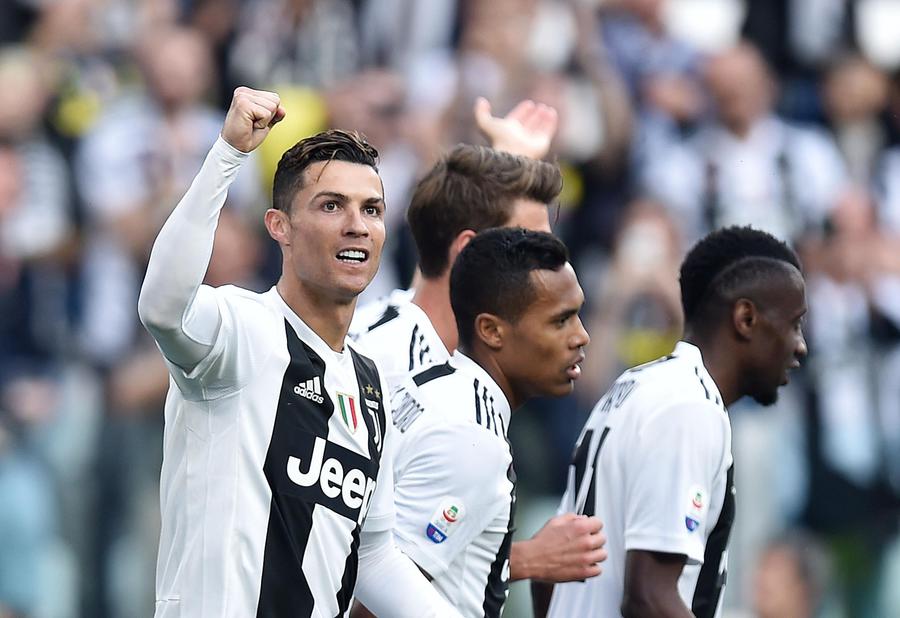
But it wasn’t all good news.
Italian football saw a surge in racist incidents at matches this season, with Inter Milan striker Romelu Lukaku having been the victim of monkey chants in Cagliari and Brescia star Mario Balotelli threatening to walk off the pitch following abuse in Verona.
In September, Fiorentina’s Brazilian defender Dalbert Henrique asked the referee to halt play when he was abused by fans.
In October, Roma issued an apology after its supporters racially abused Sampdoria’s English midfielder Ronaldo Vieira.
Meanwhile, Roma’s city rivals Lazio received a partial stadium ban from UEFA after racist chanting during a game with French outfit Rennes.
All 20 of Italy’s Serie A clubs on November 29 signed a joint open letter to fans condemning racism in stadiums.
Just days after the letter was signed, Italian sports daily Corriere dello Sport was accused of fuelling racism and crossing “the line of acceptability” with the front-page headline ‘Black Friday’.
A year-long celebration of Leonardo
May 2 marked the 500th anniversary of Leonardo da Vinci’s death.
Italian President Sergio Mattarella and his French counterpart, Emmanuel Macron came together to commemorate the historic event.
Many discoveries were made public during the year to mark the anniversary, including the DNA testing of a hair believed to be Leonardo’s and the proof the genius was ambidextrous.
Prada goes fur-free
On the fashion front, Prada announced in May that it would remove animal fur from its collections starting from their 2020 Spring/Summer Women’s collections, becoming the latest brand to join the fur-free alliance.
Italy’s volcanoes roar
June had an explosive start, when Mount Etna erupted on the first weekend of the month, spitting molten lava high into the sky and putting on a show for locals and tourists on the southern Italian island.
While no one was injured on that occasion, a hiker was killed the following month when Stromboli erupted (pictured below).
“It was like being in hell because of the rain of fire coming from the sky,” Italian news agencies quoted local priest Giovanni Longo as saying.
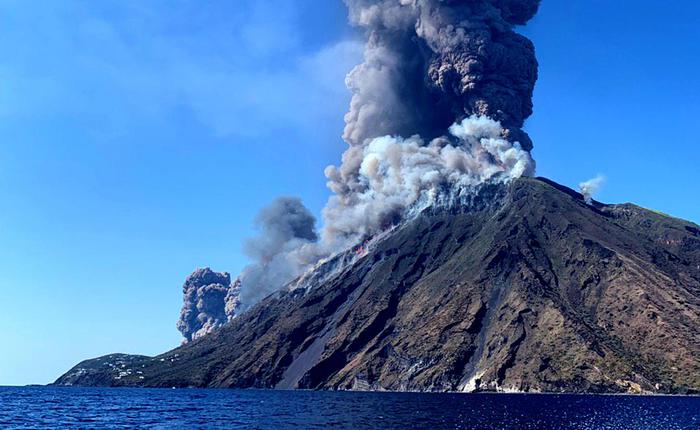
Wild weather batters the nation
It was a year of wild weather for Italy, from a record-breaking heatwave in June, to severe storms in November which left Venice and many other parts of Italy under water.
Italy mourns a policeman murdered at the hands of American teens
One of the biggest stories to come out of Italy rocked the nation in July, when police officer Mario Cerciello Rega (pictured below) was stabbed to death on a street in Rome.
Hundreds of people attended Cerciello Rega’s funeral, including then deputy prime ministers, Matteo Salvini and Luigi Di Maio.
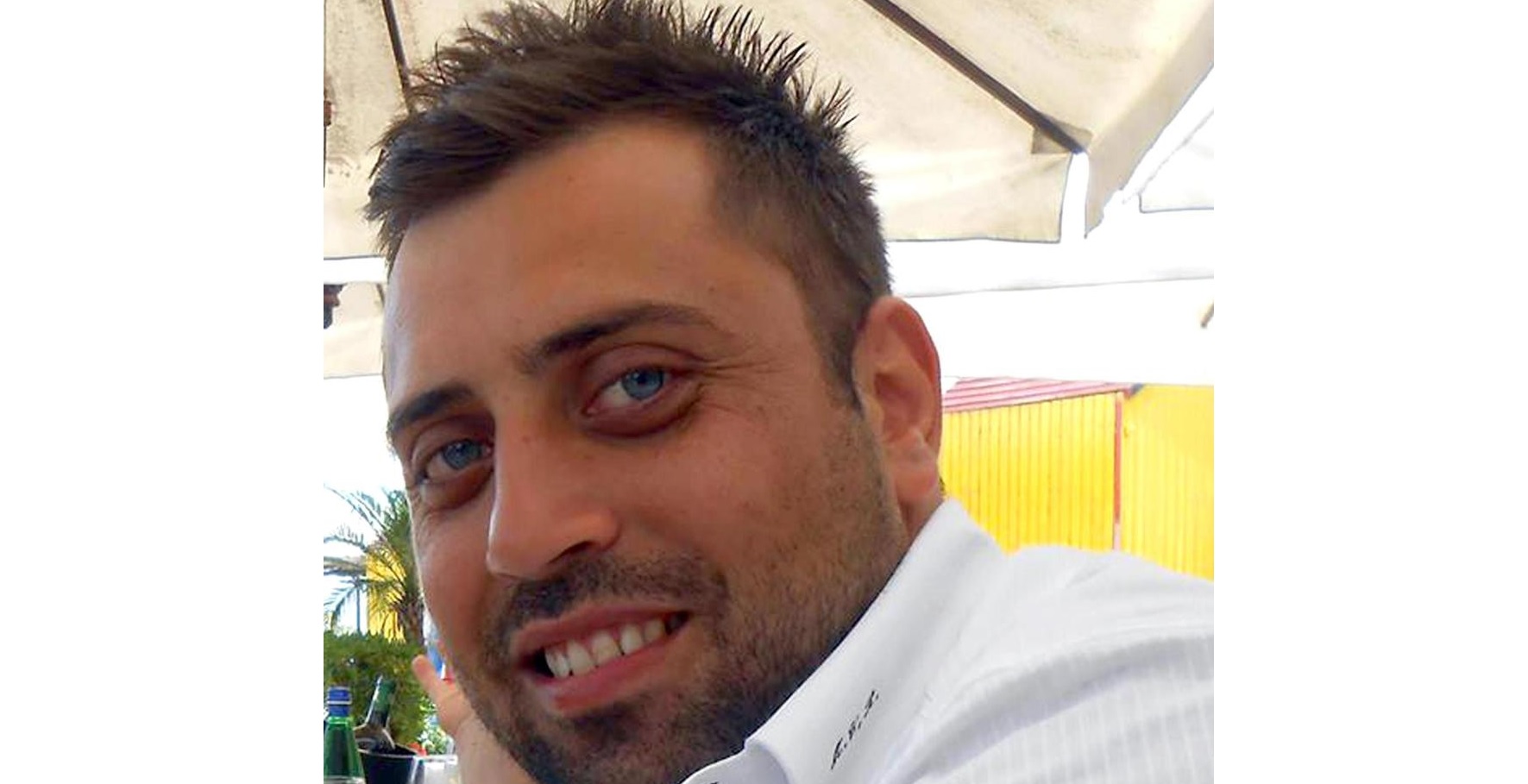
Two Americans, Gabriel Natale Hjorth, 18, and Finnegan Elder, 19, were charged with aggravated homicide and attempted extortion following the murder in Rome’s upmarket Prati neighbourhood.
Elder later confessed to stabbing Cerciello Rega with a US Marine partially-serrated, close-quarters combat knife, police said, as they gave a detailed account of what happened on the night of the attack.
However, he claimed he didn’t know Cerciello Rega was a police officer, and thought he was a dangerous drug dealer.
The teens remain in custody in Italy.
Last month, Judge Chiara Gallo set the trial date for February 26, 2020, in an unusually quick process by the standards of the Italian justice system.
The collapse of a government
Italy’s government collapsed when Matteo Salvini pulled the plug on the alliance with the Five Star Movement (M5S) on August 8, plunging the economy into turmoil.
Giuseppe Conte stepped down as Prime Minister following the row, calling Salvini “irresponsible” for his attempt to bring down the government and force snap elections.
Conte (pictured below) was soon back at the helm of the government, after the M5S and the Democratic Party (PD), once enemies, agreed to form a coalition in order to avoid snap elections and save the country from economic despair.
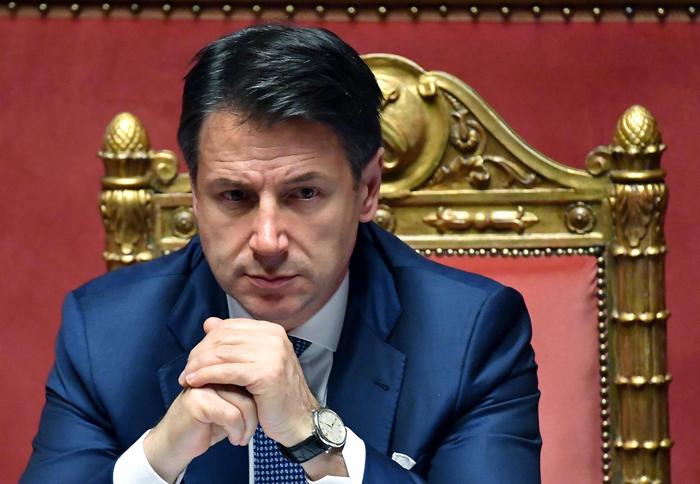
The new coalition government was sworn in on September 5.
The following month, Italy’s parliament voted to cut the number of representatives in both the upper and lower houses by more than a third.
This change will only come into effect if voted for in a referendum next year.
A new start for Genoa
October began on a positive note.
On October 1, just over a year after the Genoa motorway bridge collapse that killed 43 people, workers installed the first stretch of a replacement designed by famed architect Renzo Piano.
The new bridge is expected to open to traffic by April 2020.
Sardines squeeze into Italy’s squares
Last month, Italy’s rising far-right was met with a surprising obstacle: the nascent “Sardines” movement.
The grassroots movement was formed by four friends from the northern city of Bologna in response to Matteo Salvini’s boasts about filling Italy’s squares with supporters.
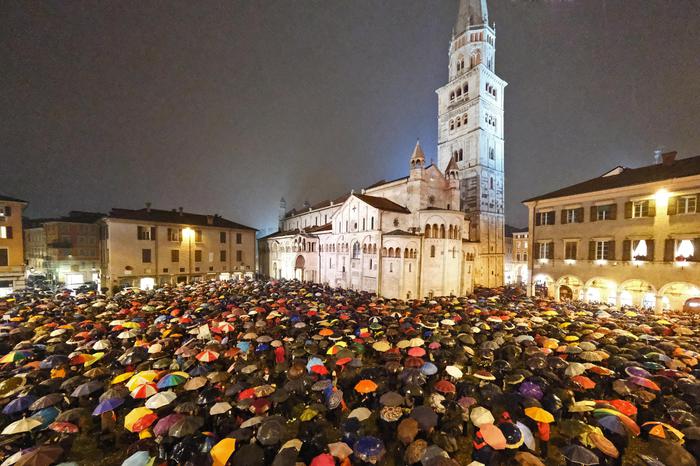
But between 12,000 and 15,000 people answered the first protest call, squeezing together like sardines in the rain in Bologna’s main square to denounce Salvini and his anti-immigrant, Italy-first rhetoric.
Tens of thousands have joined in on rallies in other cities such as Florence and Rome.
Around half of Brindisi’s population evacuated
Officials evacuated 54,000 people from the southern Italian city of Brindisi on Sunday, as experts worked to defuse a World War II bomb, the largest operation of its kind in the country since the end of the war.
Milan, the most liveable place in Italy
This week, Milan was named the most liveable place in Italy for 2019.
Italian financial newspaper Il Sole 24 Ore on Monday released the 2019 edition of its annual quality of life survey, naming Milan the best town or city to live in the country.
According to the survey, the worst place to live in Italy is the town of Caltanissetta, on the southern island of Sicily, which came last for the fourth time in the history of the ranking.
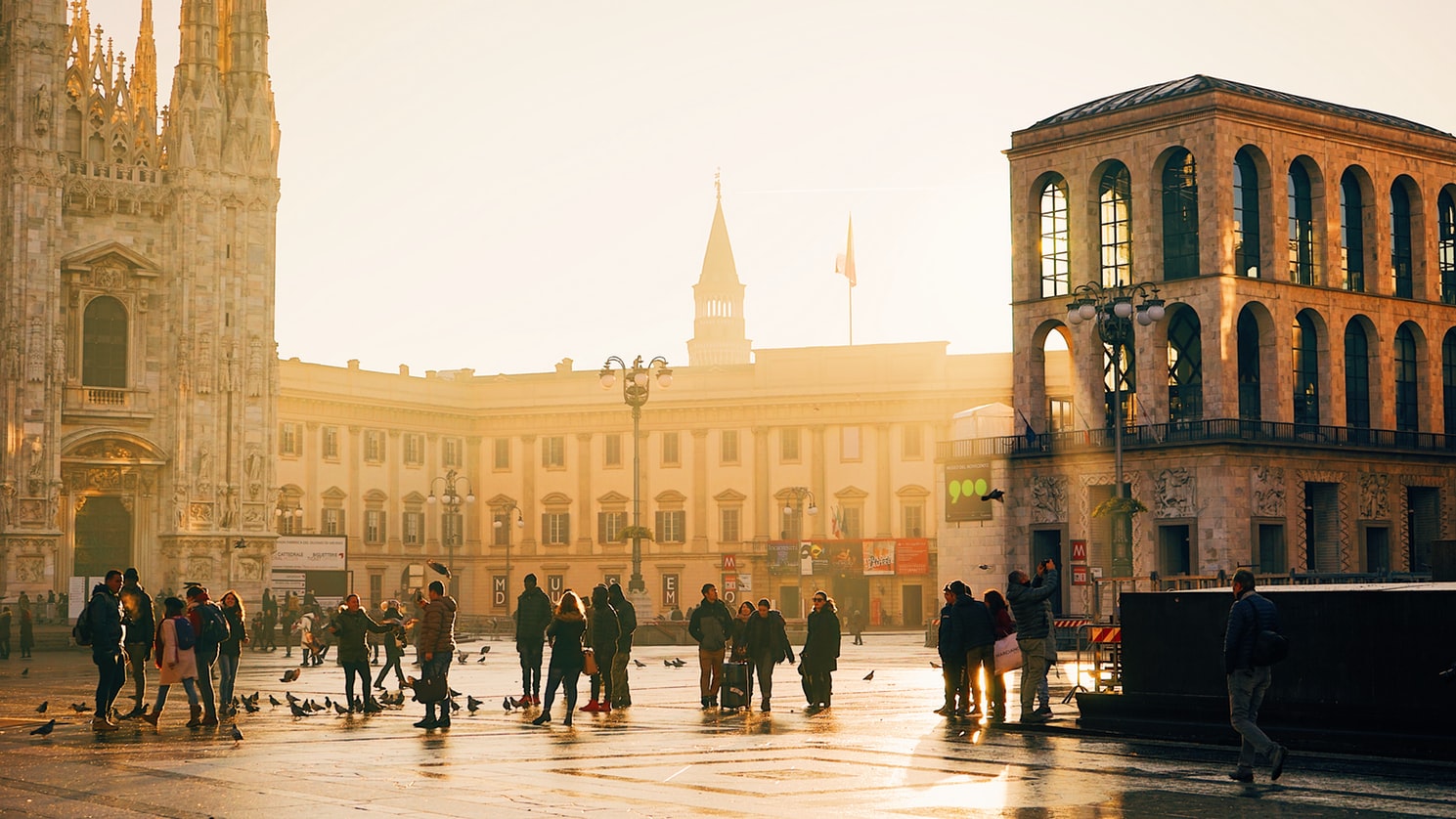
And that’s all for another year ... we’ll see you in 2020 for another decade of excitement!

